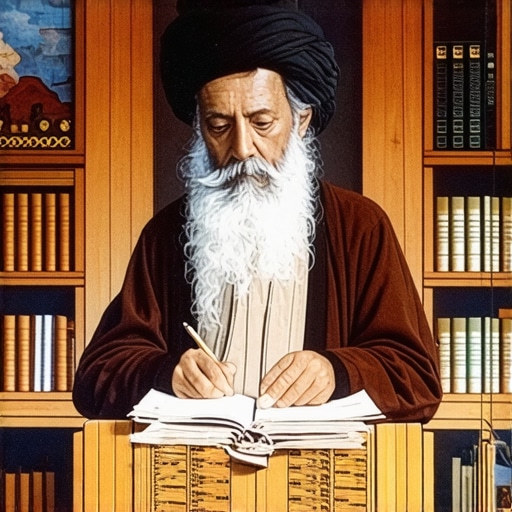My Journey into Understanding Lucid Dreams and Their Islamic Perspective
As someone deeply interested in the spiritual aspects of dreams, I remember the first time I experienced a lucid dream — a moment where I was aware I was dreaming and could even influence the dream’s outcome. It made me wonder about the nature of such dreams within the Islamic framework, especially considering the concepts of Halal and Haram.
What Are Lucid Dreams and Are They Allowed in Islam?
Lucid dreams, where the dreamer gains awareness within the dream, fascinate many of us exploring spirituality. From an Islamic perspective, dreams are considered a form of divine communication or reflection of one’s inner state. According to scholars, the key concern is whether the dream involves any prohibited (Haram) content or influences one’s faith negatively. If a lucid dream involves engaging in sinful acts or leads to misguidance, then it could be deemed Haram.
Spiritual Significance of Lucid Dreams in My Personal Experience
In my personal practice, I’ve found that lucid dreams can be a tool for spiritual growth if approached with sincerity and mindfulness. For instance, I once had a dream where I was praying, and the clarity of the moment made me realize the importance of maintaining a strong connection with Allah. Such dreams remind us to be conscious of our actions, both in sleep and wakefulness, aligning with the Islamic view that dreams can carry divine messages.
Could Dream Control Be Considered Ethical or Haram?
This question has always intrigued me: is it permissible in Islam to actively control or manipulate your dreams? Based on my research and reflection, controlling dreams isn’t inherently Haram if it doesn’t involve engaging in forbidden acts or deception. Instead, it can be seen as a form of spiritual discipline, akin to meditation or prayer. However, it’s crucial to avoid obsession or reliance on dream manipulation for personal gain, which may lead to shirk or neglect of one’s duties.
How Do Dream Symbols and Their Interpretations Fit into Islamic Teachings?
Symbols in dreams, like snakes or water, are often interpreted using traditional Islamic dream dictionaries. For example, a snake can symbolize both danger and healing, depending on the context. I often refer to trusted sources like the Islamic Dream Dictionary to understand these symbols better. It’s important to remember that dream interpretation in Islam isn’t always literal but carries spiritual lessons.
If you’re curious about how your dreams might be meaningful from an Islamic perspective, I encourage you to explore authoritative sources and consult knowledgeable scholars. Sharing your experiences and seeking guidance helps us grow spiritually and ethically in our understanding of dreams.
If you’ve had any lucid dreams that impacted your faith or spiritual journey, I’d love to hear your story in the comments. Our collective experiences can deepen our understanding and strengthen our faith.
Deciphering Dream Symbols: An Expert Approach to Islamic Dream Interpretation
Understanding the symbolism behind dreams is a nuanced art in Islamic tradition. Scholars emphasize that dreams often carry divine messages or spiritual lessons, but their interpretation requires deep knowledge and context. For example, a dream about a snake can signify danger, but it may also symbolize protection or healing, depending on the circumstances. To grasp these messages accurately, consulting trusted sources like the Islamic Dream Dictionary is invaluable. Remember, dreams are not always literal; they often serve as metaphors guiding us toward personal growth and spiritual clarity.
The Role of Personal Spirituality in Dream Interpretation
In my experience, cultivating a sincere connection with Allah enhances our ability to understand and benefit from dreams. Engaging in supplication, dhikr, and prayer before sleep can open avenues for divine guidance through dreams. When I had a dream about a luminous key, it symbolized unlocking new spiritual insights, which led me to reflect on my inner self and seek divine wisdom more intentionally. Such dreams reinforce the idea that spiritual discipline not only purifies our hearts but also sharpens our perception of divine signs, aligning with the Islamic perspective that dreams serve as a mirror of our spiritual state.
How Can We Differentiate Between True and False Dreams?
Distinguishing between genuine divine messages and mere illusions is a challenge faced by many believers. Authentic dreams often leave a profound impact, evoke a sense of peace, and align with Islamic teachings. Conversely, nightmares or confusing visions might stem from Shaytan or worldly distractions. To discern true dreams, scholars advise prayer and seeking Allah’s guidance, asking for clarity and protection against deception. The Prophet Muhammad (peace be upon him) recommended the recitation of supplications and consulting knowledgeable individuals when in doubt. Combining spiritual sincerity with scholarly consultation ensures that we interpret dreams responsibly, avoiding misguidance.
What Are the Practical Steps to Enhance Dream Recall and Interpretation?
Enhancing dream recall begins with mindfulness and intentionality. Keeping a dream journal upon awakening helps capture details that might fade quickly. Repeating supplications before sleep, such as the Dua for good dreams, can also improve clarity. When analyzing dreams, consider the emotional tone, symbols involved, and your current spiritual or personal circumstances. For instance, dreaming of a garden with ripe fruits might symbolize spiritual growth or blessings, but only if it resonates with your current journey. For further guidance, exploring resources like the Islamic perspectives on spiritual cleansing through dreams can deepen your understanding of how dreams relate to your faith.
If you’ve experienced dreams that left a lasting impression or prompted spiritual reflection, consider sharing your insights in the comments. Engaging with fellow believers enriches our collective understanding of divine messages and strengthens our faith journey.
< }
}
Exploring the Nuances of Dream Symbols and Personal Spirituality
As I continue my journey into understanding dreams within the Islamic tradition, I realize that each symbol carries layers of meaning that are often intertwined with our personal spiritual states. Sometimes, a dream about a loss of teeth can symbolize not only fears or anxieties but also a transition in spiritual growth, reminding us to maintain sincerity in our faith journey.
How Does Personal Spiritual Discipline Influence Dream Interpretation?
From my experience, the act of engaging in prayer and dhikr before sleep significantly enhances our ability to receive divine messages through dreams. It’s akin to sharpening a spiritual lens—making the symbols clearer and the messages more profound. I’ve noticed that dreams become more aligned with Islamic teachings when I consciously seek Allah’s guidance beforehand, which echoes the wisdom shared by scholars about the importance of spiritual preparation.
Can Dream Symbols Reveal Hidden Aspects of Our Nafs and Inner Self?
Indeed, some symbols in dreams serve as mirrors reflecting our inner Nafs—those aspects of ourselves that are in need of purification. For example, dreaming of a shaking earth can symbolize internal upheaval or spiritual awakening. Recognizing these signs requires a deep awareness and honest self-assessment, which I find to be a vital part of our faith development.
What Are the Challenges in Interpreting Dreams Accurately and Responsibly?
One of the most delicate aspects of dream interpretation in Islam is avoiding misguidance. It’s easy to fall into the trap of over-interpretation or misreading symbols, especially when personal biases cloud judgment. That’s why I always emphasize the importance of consulting trusted scholars and relying on authentic sources like the Islamic Dream Dictionary. Combining spiritual sincerity with scholarly guidance ensures that we interpret dreams responsibly, guarding ourselves from Shaytan’s deception.
Inviting Readers to Share Their Dream Experiences and Insights
Dreams are deeply personal yet universally significant. I encourage you, dear readers, to share your own experiences with dreams that have impacted your spiritual journey. Whether it’s a vivid vision or a subtle sign, your stories can inspire and enlighten others. Feel free to comment below or reach out via our contact page. Together, through shared insights, we can deepen our understanding of divine messages and strengthen our faith.
< }
}
Unlocking the Hidden Layers of Dream Symbols in Islamic Mysticism
As I delved further into the intricate world of dream symbolism within the Islamic tradition, I realized that each symbol often acts as a multi-layered message from the divine or our Nafs, requiring profound discernment. For instance, dreaming of a loss of teeth can transcend mere anxieties, potentially signifying a spiritual shedding or an awakening to divine truths. Such interpretations demand that we approach symbols with both scholarly knowledge and personal introspection, acknowledging their contextual and spiritual nuances.
How Does Personal Nafs and Inner Self Influence Dream Interpretation?
In my experience, the state of one’s Nafs profoundly colors the symbolism received in dreams. An unpurified Nafs might project fears or worldly attachments onto dream images, whereas a purified heart perceives divine messages with clarity. The act of self-purification through sincere supplication and dhikr enhances our spiritual receptivity, enabling us to interpret dreams more accurately. Engaging in regular spiritual discipline acts as a filter, allowing divine messages to penetrate our consciousness more distinctly, thus enriching our understanding of sacred symbols and their divine intentions.
Can Advanced Dream Interpretation Techniques Elevate Our Spiritual Awareness?
Indeed, employing advanced techniques such as reflective meditation, contextual analysis, and scholarly consultation can elevate our interpretive skills. For example, exploring dreams of pregnancy through this refined lens often reveals deeper insights about spiritual rebirth and divine promise. Integrating these methods fosters a more nuanced comprehension, allowing believers to recognize divine signs embedded within complex symbols like the earthquake or green hues, which often signify transformative spiritual shifts.
How Can We Cultivate a Higher State of Dream Awareness and Responsiveness?
To foster heightened dream awareness, I recommend maintaining a consistent practice of spiritual reflection and intentional supplication before sleep. Developing a habit of journaling dream details and emotional impressions deepens one’s connection to the messages received. Additionally, engaging in repentance and seeking divine guidance enhances clarity, preventing misinterpretation and ensuring alignment with divine wisdom. Over time, these practices cultivate a sacred sensitivity, allowing the dreamer to perceive divine intentions more vividly and respond with greater spiritual maturity.
Invitation for Deeper Engagement
If you are passionate about honing your interpretive skills or wish to explore the sacred depths of your dreams, I invite you to share your experiences and insights. Personal stories of divine messages or spiritual revelations can serve as powerful tools for collective growth. Feel free to connect through our contact page and join a community committed to sacred dream exploration. Together, we can unlock profound spiritual secrets woven into our nocturnal visions, enriching both our faith journey and understanding of divine communication.
Things I Wish I Knew Earlier (or You Might Find Surprising)
The Power of Personal Reflection
Looking back, I realize how much my understanding of dreams in Islam deepened when I started reflecting on my personal experiences rather than just relying on generic interpretations. Dreams often carry unique messages tailored to our spiritual state, and acknowledging this has made my journey more meaningful.
The Subtlety of Dream Symbols
Initially, I thought certain symbols like snakes or water had fixed meanings, but I learned that context and personal circumstances matter greatly. A snake might symbolize danger in one dream but healing or protection in another, depending on the situation. This nuance has helped me interpret dreams more responsibly.
The Role of Spiritual Discipline
Engaging in daily dhikr and prayer before sleep has significantly enhanced my ability to receive divine messages through dreams. It’s like sharpening a spiritual lens—making symbols clearer and messages more profound. This practice has reinforced my belief that spiritual discipline directly influences dream clarity.
Dreams as Mirrors of Inner Nafs
Dreams often reflect our inner Nafs—our spiritual and moral state. Recognizing this has motivated me to work on purifying my heart through repentance and sincere worship, knowing that a purified Nafs results in clearer divine guidance in dreams.
Beware of Over-Interpretation
One lesson I wish I grasped sooner is avoiding over-interpretation. Dreams can be misguiding if we read too much into them without proper knowledge or guidance. Consulting trusted scholars and authentic sources is essential to avoid falling into misconceptions.
Dreams and Divine Timing
I’ve also noticed that dreams often come at spiritually significant moments, acting as divine signs or encouragement. Recognizing these timings has helped me trust Allah’s wisdom and be patient in my spiritual journey.
Resources I’ve Come to Trust Over Time
Islamic Dream Dictionary
This comprehensive source has been invaluable in understanding dream symbols in their proper context. It’s like a spiritual compass that guides me to interpret dreams responsibly and accurately.
Scholarly Works by Ibn Sirin and Al-Nabulsi
Classical scholars’ writings have provided deep insights that modern interpretations often overlook. Their thoughtful explanations remind me of the importance of rooted Islamic knowledge in dream interpretation.
Online Platforms and Forums
Communities dedicated to Islamic spirituality and dream discussion have helped me see diverse perspectives and learn from others’ experiences, fostering a supportive environment for my growth.
Personal Spiritual Guides
Whenever possible, consulting knowledgeable scholars or spiritual mentors has offered personalized guidance that aligns dreams with my faith and life circumstances.
Parting Thoughts from My Perspective
Reflecting on my journey, I realize that understanding dreams within the Islamic tradition is deeply personal yet rooted in divine guidance. Trusting Allah, engaging in sincere worship, and consulting authentic sources have been my keys to unlocking the spiritual messages hidden in my dreams. These experiences have enriched my faith and reminded me that every dream can be a sacred message if approached with humility and sincerity. If this resonates with you, I’d love to hear your thoughts or personal stories. Sharing our insights can strengthen our collective understanding and faith.


